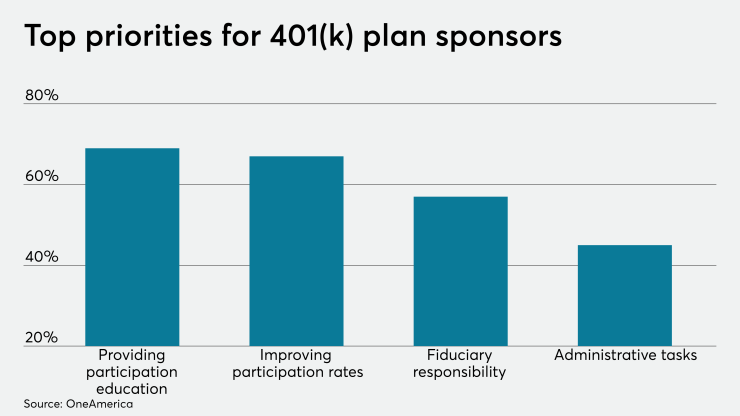Business planning is an interesting and challenging endeavor that requires advisers to utilize company money rather than personal funds to implement a plan.
I built my career working with individuals with closely-held and family-owned businesses, some of which were start-ups who work out of their garage and some who have established enterprises. Over time the small companies became well established and some grew to become national firms. As they expanded, they needed more and more planning options including personal and corporate retirement planning. Depending on the evolving needs of the business owner and the company, we would start with individual IRAs, simple 401(k)s and eventually implement 401(k) and cash balance plans.
As the size and complexity of the retirement plans grew, I was challenged to keep my expertise current. You might say I was “consciously incompetent,” meaning I knew I had to get smarter if I was going to compete in the retirement plan market. The first step to gain a competitive edge in this market is to explore the multitude of available resources that can help you expand a 401(k) practice into a career that spans numerous retirement capabilities.
One way to start building your skill set is to talk to several 401(k) carriers, beginning with existing plans. Ask them what is working for other advisers building their practices and how you can be more successful at prospecting. What are the hot buttons for plan sponsors in selecting a new adviser? What information do they need to create a proposal for you? Who is your competition and what’s unique about your company? Have them share what worked for some of their recent cases and why. Request their resources, such as printed material and educational websites. As simple as it sounds, you’ll be amazed by how beneficial this information is in a client presentation.
Conversations with carriers are practical mentoring, but you will also need technical knowledge. The internet offers a never-ending pool of information regarding plan design, whether to charge fees or commissions, how to evaluate an investment portfolio in a plan, how to compare lifetime funds and much more. There are also numerous newsletters available online. The one you’re reading, Employee Benefit Adviser, is an excellent choice. Another I find very helpful is
Amazon offers a wide assortment of books on 401(k) plans that range from technical to sales-oriented topics. One book I found interesting is Charles D. Epstein’s Paychecks for Life. He discusses some unique concepts to help you communicate the value of a 401(k) to employees at an enrollment meeting and also offers seminars and coaching.
You will want to be familiar with other qualified plans beyond the 401(k) that will surface as you talk to high-income earners. One is a Cash Balance Plan (CBP). CBPs offer high-income earners the opportunity to shelter six figure incomes in excess of what they can do in their 401(k) plans.
Educational wisdom is not the same as experiential wisdom. The more you expose yourself to new opportunities the better you will become and appointments will be more relaxed. Concentrate on asking good questions, listening to your client and prospect’s answers and offering practical advice. Too often, we start selling before we discover the needs and desires of the plan sponsor. Remember, when the lecture begins, inspiration ceases.






